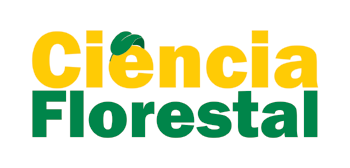ABSTRACT
The use of forest biomass is an important alternative source of renewable, economic, technical and environmentally viable energy, which struggles to displace other energy sources that are more expensive or non-renewable, such as natural gas, diesel oil and LPG. Within the industrial sector, which is the biggest consumer of energy from biomass, the red ceramics sector represents a traditional consumer of firewood for energy production. A considerable number of companies in this sector has recently started to use, as an alternative option for energy production, chips made from several different wood wastes. The choice for this type of biomass is due to four main reasons: high availability of material on the market; environmental benefits, since it is a renewable material; higher uniformity during combustion, compared with firewood; and feasibility for implementation of an automatic furnace feeding system. This study aimed to characterize and describe the red ceramics sector in the State of Sao Paulo, regarding the consumption of wood residues for energy purposes. The sampling survey collected regional data on the quantity and efficiency of use of wood residues as a source for energy generation in the sector, as well as on technological, economic and logistical aspects related to the use of this biomass. It is estimated that the use of wood chips is being presently adopted by approximately 80% of medium scale ceramic plants in the State of Sao Paulo. These chips are originated from sawmill residues, forest harvest operations of pine and eucalyptus, urban trees pruning and recycling of wood products in general. The average distance radius for supply of chips to the ceramic plants is approximately 200 km. The evaluated ceramic plants outsource chips at an average price of R$ 43.00 per m³. The average efficiency observed was of 1.4 m³ of chips per thousand finished pieces produced. The ceramic plants reported the need for a better regularity in quality of this bio-fuel, which usually varies for each other load delivered.
Keywords:
energy; biomass; bioenergy; market

